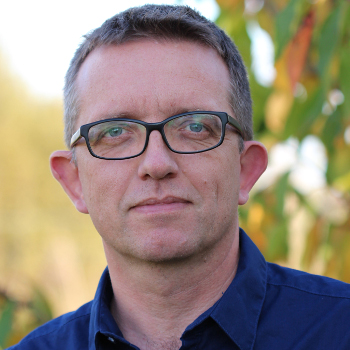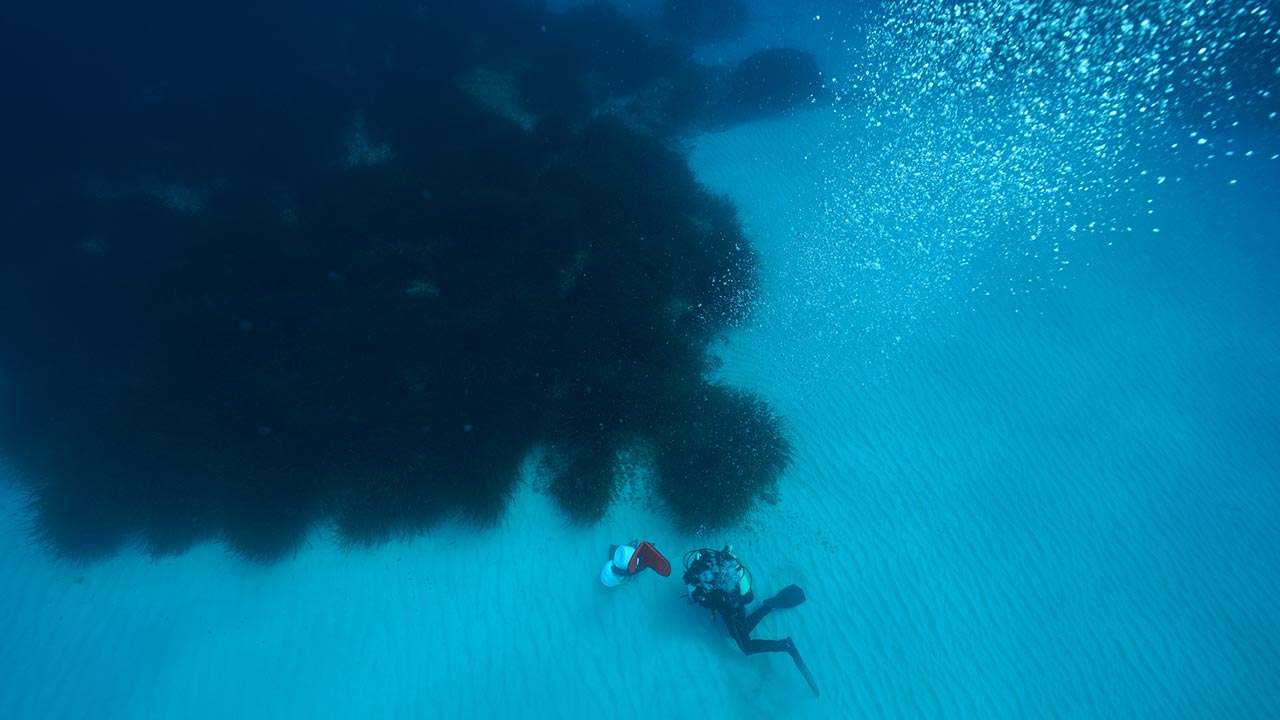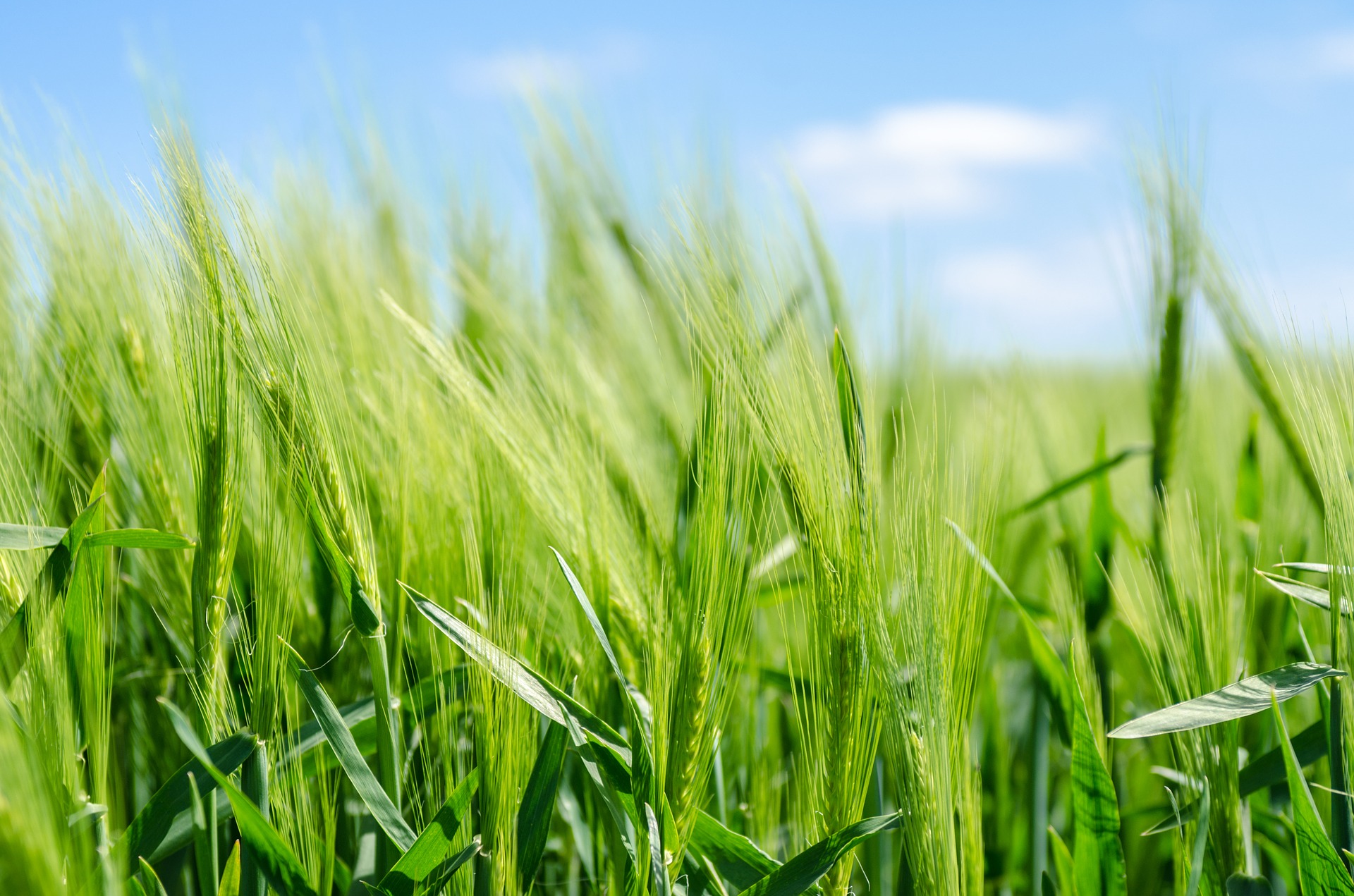Capturing global biodiversity
Michael OhlProfession
PhD biologist
Position
Acting Head of the Center for Integrative Biodiversity Discovery at the Museum für Naturkunde Berlin

Profession
PhD biologist
Position
Acting Head of the Center for Integrative Biodiversity Discovery at the Museum für Naturkunde Berlin

The Berlin biologist Michael Ohl wants to record the diversity of animal species on earth with the help of innovative technologies - at the new Center for Integrative Biodiversity Discovery.
Species extinction is increasing worldwide. Above all, the decline of insects is dramatic - not least in Germany. Habitat destruction, environmental toxins and climate change are the causes of this devastating global development. At the same time, there are still millions of unknown species waiting to be discovered. This is where the work of the Center for Integrative Biodiversity Discovery at the Museum für Naturkunde in Berlin, founded in June 2018, comes into play. A team led by Michael Ohl, acting head of the Center, will focus on the exploration and study of animal species on Earth. The biologist wants to track down and investigate the "players in the complex structure of nature" with the help of modern technologies. His aim is to better understand global biodiversity and provide answers to pressing questions such as the extinction of species. The focus is also on insects, which are particularly important as pollinators for the survival of entire ecosystems.
Why is such a Center necessary?
The diversity of life on earth is a fundamental component for the entire earth system and especially for the global ecosystems. We need to know what species exist on Earth in order to make reliable statements about the natural world. On the other hand, however, we are seeing an alarming rate of species extinction, and there is no doubt that we need to drastically increase the speed at which we want to record species. In addition to mapping global biodiversity, the department also serves to develop and test new methods and concepts to make species discovery more efficient.
What are the tasks of the new Center?
I see the discovery of all animal species on earth as the most important programmatic goal of the new Center. About 1.5 million animal species are known today. Recent projections assume that about 8 million species are still undiscovered. This is a major challenge because the majority of the unknown species are likely to be small and inconspicuous. Most of them will live in habitats that are difficult to access, such as the deep sea, the soil and the treetops of the rainforests.
The Center is divided into three research areas. In one of them, many taxonomic projects are carried out, but in addition, methods and technologies of integrative biodiversity discovery are being developed. Another area deals with data integration. Many modern technologies such as genomics and micro-computer tomography lead to an enormous amount of digital data that must be intelligently processed and analyzed. The third area aims to establish taxonomic projects related to application areas such as medicine, veterinary medicine and agricultural science.
What opportunities does the knowledge of global biodiversity offer?
The millions of biological species also represent millions of solutions to evolving problems that can help us not only understand nature, but also solve some of our own problems. Ingredients, surface structures, material properties and much more discovered in nature have already led to numerous interesting applications. The still undiscovered diversity of species harbors the potential to provide similar solutions for important societal issues, such as world nutrition and world health. In addition, comprehensive recording of species is an important basis for urgently needed species monitoring to document changes in species composition over the long term. This is a prerequisite for developing the right measures to protect species and habitats.
The worldwide recording of species alone sounds like a mammoth task that requires not only personnel but also technical know-how. How do you intend to master this challenge?
Modern taxonomy, i.e. the scientific discovery, description and naming of species, must be carried out globally and as teamwork. The specialists for the different animal groups are distributed all over the world, and I see it as one of the challenges of the new Center to bring together different fields of expertise. Beyond the biological competencies, however, expertise in areas such as bioinformatics and data management is required in order to archive the enormous amounts of molecular and image data in a sustainable way and to be able to analyze them intelligently. Fortunately, the Center is financially positioned to fill several new positions.
Which groups of organisms are you focusing on and why? Is there an urgency list?
Groups of organisms with above-average species numbers are usually also those with special significance for ecosystems, but also for application-related questions. For this reason, the focus is also on insects, for which the proportion of undiscovered species is particularly high. Some of the insect groups, such as the more than 20,000 already known wild bee species, are important pollinators not only in natural habitats but also in fruit growing. There is great interest in researching such animal groups with particular intensity. In addition, there are other groups of invertebrates with a high proportion of undiscovered diversity such as nematodes and mites.
As a researcher, what hopes do you have for the worldwide recording and study of species?
Current climate change and global species extinction, and the resulting global changes in global ecosystems, are probably the greatest and most pressing challenges facing human society. I think it is extremely important to know the players in the complex fabric of nature. Only then can we understand how nature works, but also what we need to do to guide human influence in a meaningful way. That's why I think it's important to record all species worldwide. Last but not least, as a scientist I am also driven by the curiosity to find out more about biodiversity. I am always surprised by the adaptations that species have developed over the course of evolution.
Interview: Beatrix Boldt


